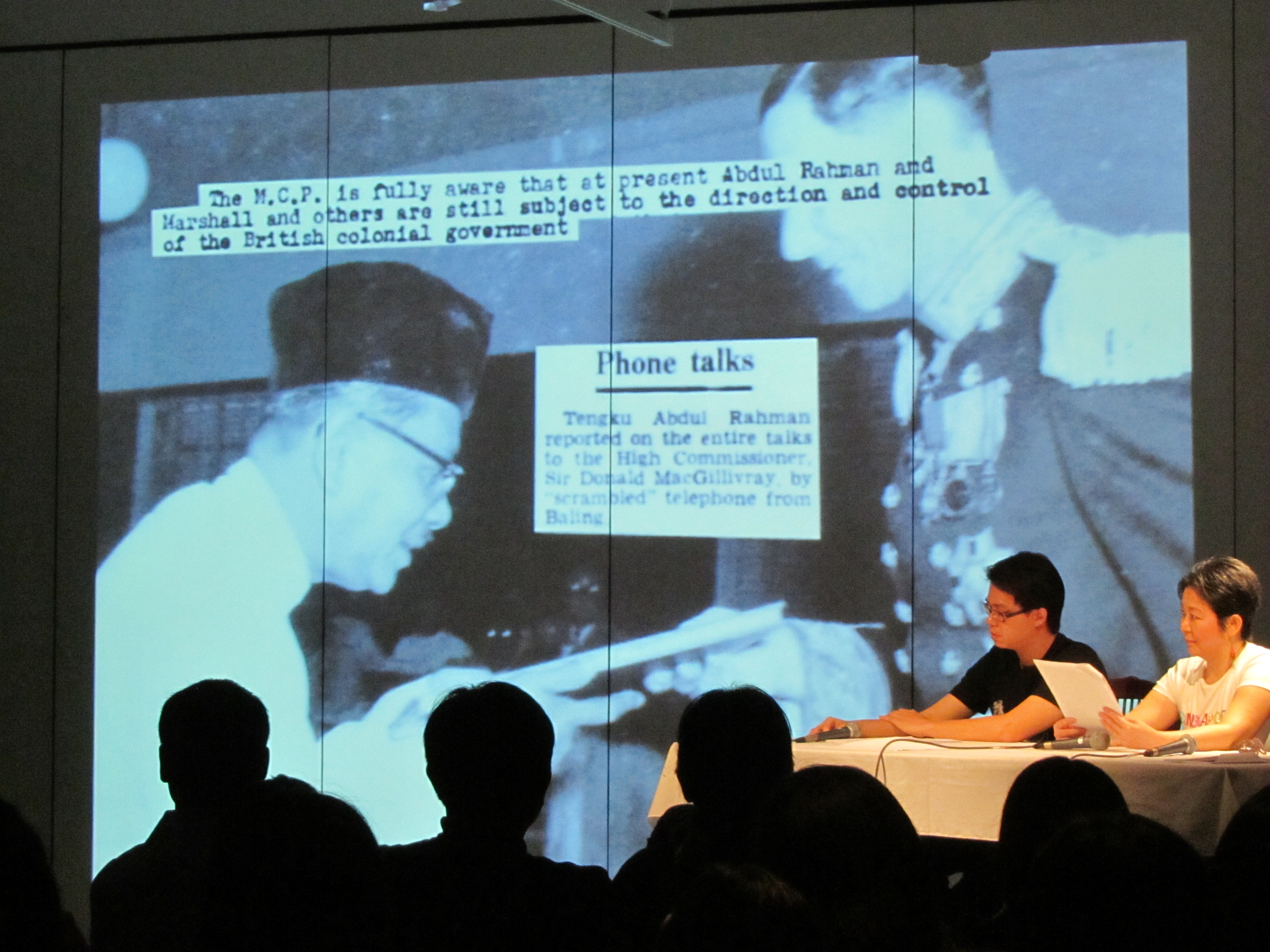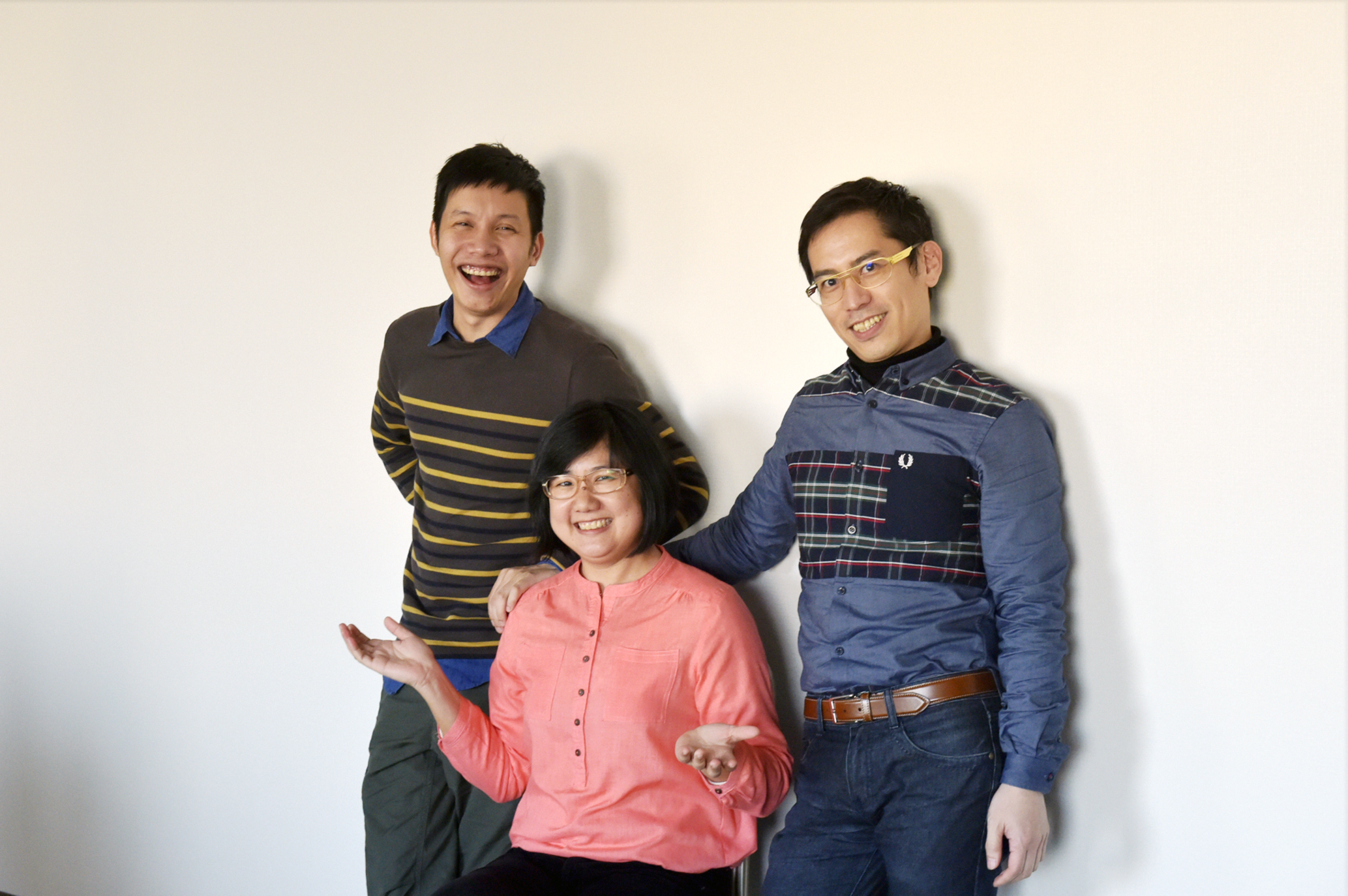Toward the Future - Reconsideration of the "Collective" and New Challenges
Higuchi: Unfortunately we are running out of time. I need to ask about the future of Five Arts Centre. Before asking about the future visions, can you talk about your latest projects?
June: We have three projects this year. It is an honor that Mark's work is invited to the performing arts festival in Gwangju, Korea, as one of the opening program of the venue. It is a very important opportunity for us in that it is an international tour. We have a musical piece in the end of the year, and are planning another piece about history in which Mark is involved. In addition to that, we plan to publish a book featuring 10 to 15 plays that were written in the 30 years.
Mark: I also think we have come to a point where we need to reconsider the form of the collective. We talked about "diffusion" or "dispersal," and I think that also means that the awareness of "membership" and its necessity has become vague. For example, there are people who are deeply committed to our work but aren't Five Arts members. We are in the process of reconsidering the idea of membership now.
Regarding the tour, over the past few years we have recently been invited to present our work outside of Malaysia more often. Not only performances but also talks like this. We have been invited to Korea and Japan more frequently than before. It might sound strange that a 30-year-old group hasn't thought much about this, but we haven't really put importance on tours and performances abroad, so we are reconsidering this too.
―Which piece do you show in the festival in Gwangju?
Mark: The 1955 Baling Talks. It is a new version of a piece we have done before based on the transcripts of the failed peace talks in 1955 between the communist leader Chin Peng, and Tunku Abdul Rahman, subsequently the first Prime Minister of Malaysia, in the small town of Baling. The first version was in 2005, but it has been updated at each presentation, and now it is totally different from the premiere. The only thing that hasn't changed is that it uses the transcripts of the 1955 talks.
Higuchi: You didn't put importance on international activity, and I think the fact that many of your works are specifically based on Malaysian historical events and social background is one of the reasons. Will the structure of the new version involve awareness of the place of presentation?
Mark: It took time to consider how to communicate in a new context with audiences who don't share the history. Actually a few years ago, I received an invitation from Europe, but I turned it down. The team was mad at me and said I was stupid for not taking the opportunity to tour the work.
The core of the piece is in re-questioning what a nation-state is, what do these words that were being debated mean – nation, surrender, loyalty, independence, freedom. Looking at the situation of the world now, I think these themes are relevant to the global context beyond national borders. I am also aware about the Gwangju uprising, for instance.
We are employing documentary methods in our work. For example, the performer and politician Fahmi Fadzil has been working on analysis of this text from a speechwriter's point of view, and we also plan to use projections of new as well as archival footage. It is true that how to communicate this piece to new, non-Malaysian audience is a new and exciting challenge for me and the team.

June: The "power of diversity." If you create something together with others, external points of view are inevitably brought in. Whether it is domestic or international, I think that is the key for a co-production.
More broadly speaking, understanding between different cultures and different backgrounds is the most basic idea in network building. Understanding each other often leads to the establishment of mutually respectful and meaningful relationship.
Another thing I want to mention is that it is the best method for rediscovering yourself to associate with people who are different from you. That stimulates your desire to know more about yourself, and the more possibility of changing your way of work you have - how you can change, or what you can add - the more you get excited. Does this sound a bit hippie? (laughs)
Higuchi: I have had conversations with Mark and June several times, and today's conversation was also very interesting. The situation of Malaysia is not irrelevant to Japan. Especially the reflection on gentrification and festivals was a theme that I want to develop on in the future. I look forward to the success of the performance in Gwangju and the further evolution of Five Arts Centre.

[February 12, 2015, in Sakuragicho, Yokohama]
Interviewer: Sadayuki Higuchi
An independent arts administrator. A board and Secretary General of non-profit organization Arts NPO Link, a secretary of nonprofit organizations Open Network for Performing Arts Management and Awajishima Art Center as well as Dance and Environment, and an advisor for TOYOTA Children Meet Artists Secretariat. He is interested in art as social movement.
Translator: Asako Fujioka






